Demolition
“We
live in a disposable society. It's easier to throw things out than to
fix them. We even give it a name—we call it recycling.”
—Neil LaBute
The western world is filthy rich and so we throw away so much. We do not even realize just how wasteful we are.
Worse, we play at reusing, reducing and recycling and think we are
doing well. Just think of China having bicycle racks on the front of
their buses, you immediately realize how meaningless many of our
environmental programs really are.
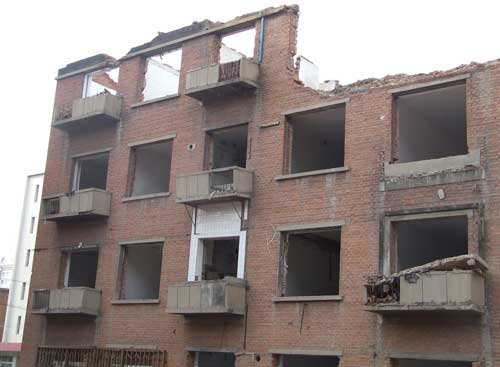
China is still a poor country so everything has value. This old
four-story brick constructed apartment building is being demolished to
make way for a six-storey poured-concrete condominium apartment building.
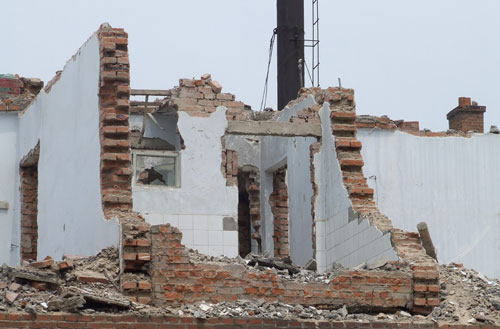
Only the bricks remain. Anything else of value has already been removed.
These workers, from the countryside, break apart the solid brick walls
with sledgehammers. They do not wear safety glasses, hard hats or
safety shoes.
There are no safety fencing or fall restraint harnesses. Not even any safety warning signs.
The men weld the sledge hammers while the women separate and clean the bricks by removing the mortar.
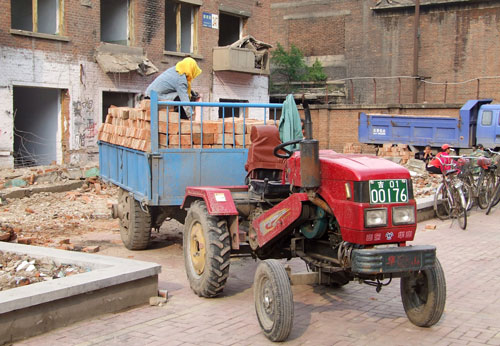
The forty-year-old bricks are being recycled and will be used on
another building. Perhaps they will be recycled several times again
before they finally become valueless.
The new condominium
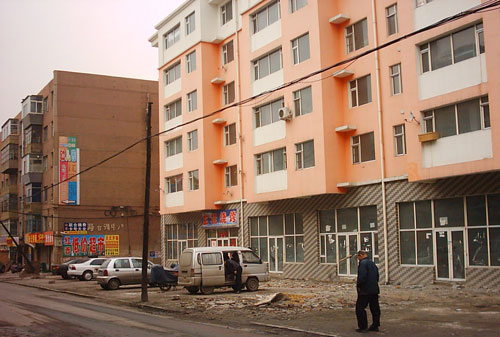
A new six-story condo replaced the old four-storey one. The workers have almost finished the project.
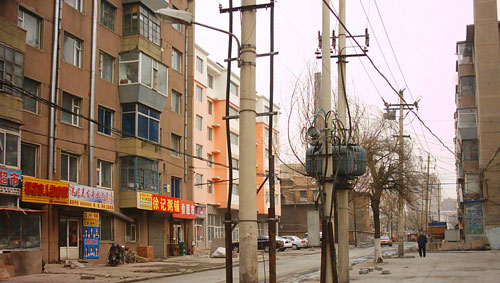
The bottom floor is designed for retail stores. The older condo beside
this one has retail stores in units that were originally residential
units.
A five storey older condo sits just to the west of the new building.
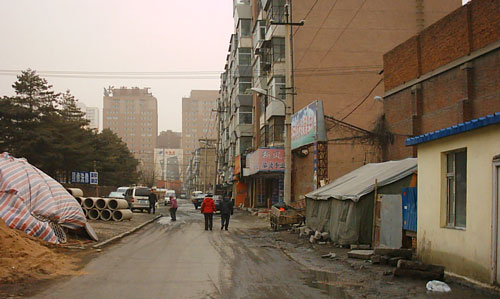
The construction workers live in surplus army tents like you see on the right.

There are public toilets throughout Changchun in white-coloured
buildings. The ones I saw, and used, were very clean and tidy. The
construction workers would use this one.
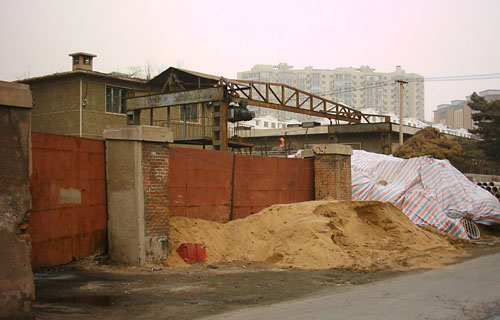
A coal powered hot water heating plant sits on the east side of the new condo.
Central heating in northern Chinese buildings is provided by
neighbourhood coal burning boilers that sends hot water underground to
the nearby buildings.
The residents heating bills are determined by
the total number of square metres of radiators they have in their units. A man arrives
every September to measure the radiators and determines the bill for
your winter heat.
You pay your yearly heating bill—in full—by the first of October or the
utility will not supply any hot water to your radiators. If you are
late paying your bill, you will have to pay a bribe to get the clerk to
accept your payment and add your unit to the hot water supply.
top contents chapter previous next







